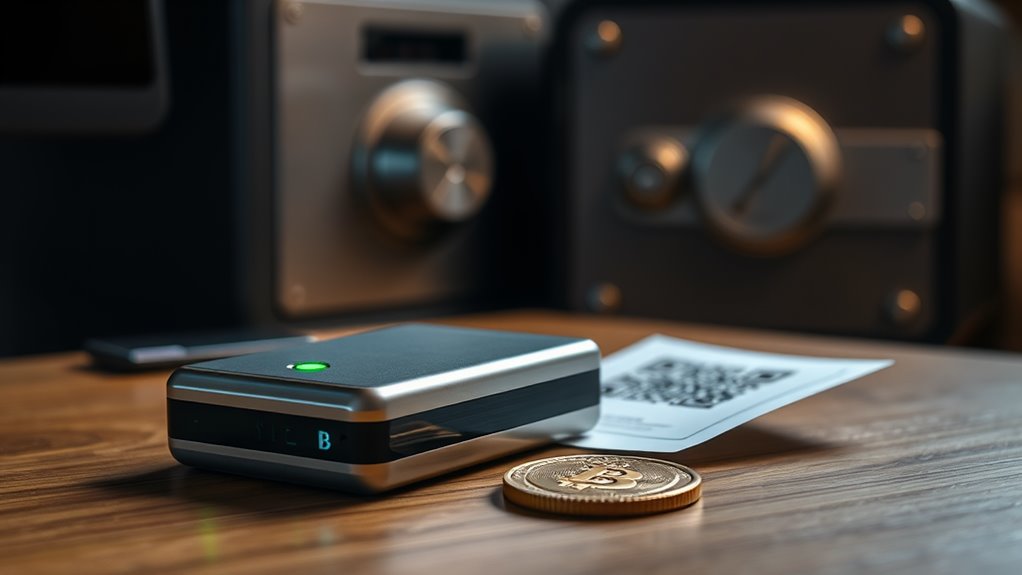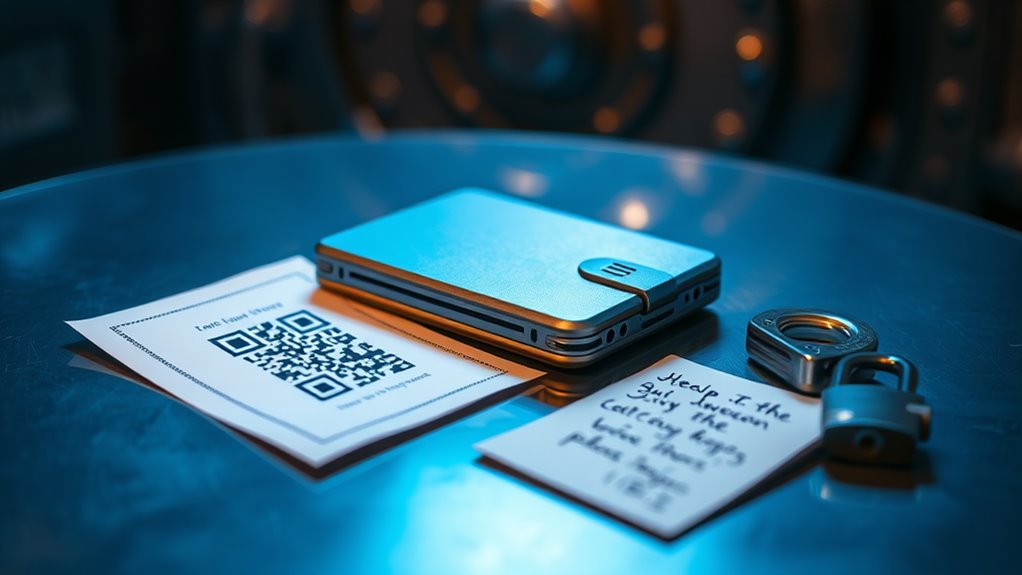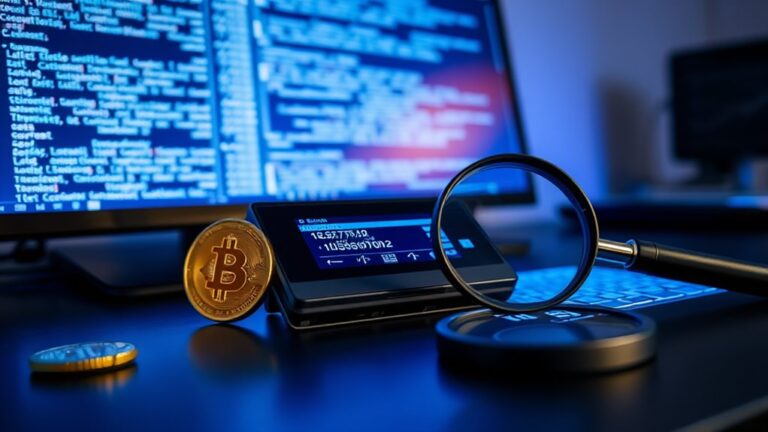Using a Cold Wallet for Secure Crypto Storage
Note: This post may contain affiliate links, and we may earn a commission (with No additional cost for you) if you make a purchase via our link. See our disclosure for more info. The crypto world is constantly changing. This content is for informational purposes only and not financial, legal, or professional advice So, please verify the info on the cryptocurrency provider’s websites.
Cold wallets are the safe haven for crypto storage. They keep private keys offline, blocking hackers and all those nasty online threats. Unlike hot wallets, which are as secure as a screen door in a hurricane, cold wallets are like digital vaults. Sure, they require some setup, but the peace of mind is worth it. Think of them as a solid defense against unwanted chaos in your crypto life. There's more to this story, so stick around.

Why would anyone trust their hard-earned crypto to a hot wallet? It's like leaving your front door wide open and hoping no one strolls in to take your stuff. Hot wallets are connected to the internet, and with over 80% of crypto thefts happening there, it's a gamble.
Enter cold wallets. These nifty little devices keep private keys offline, away from prying eyes and internet threats. Transactions are signed offline, then sent to online devices. Think of it as sending a postcard instead of a text—safer, right? Cold wallets store private keys offline, minimizing exposure to potential threats during transactions. They are ideal for long-term investors seeking a digital safe deposit box.
Cold wallets keep your private keys offline, shielding them from online threats—think of it as sending a postcard instead of a risky text.
Hardware wallets, the rockstars of cold storage, use secure chips to keep keys isolated. They're like a safe for your crypto. Plus, you can separate high-value assets from your active trading accounts. It's smart.
But not all hardware wallets are true cold wallets; some connect briefly for transactions. Just a little internet flirtation, if you will. Many hardware wallets resemble USB drives in appearance while providing sophisticated security features inside.
The security benefits are huge. By keeping keys offline, users are protected from malware, phishing, and the like. No more worrying about malicious smart contracts approving unwanted transactions.
Paper wallets exist, too, but they come with their own set of risks—like physical damage and no recovery options. Lose that paper, and it's game over.
Setting up a cold wallet is straightforward. Generate keys offline, create recovery phrases, and test transactions with small amounts. It's all about being cautious.
But even here, there are risks. Paper wallets can be easily lost or damaged. Human error can lead to irreversible asset loss—like sending crypto to the wrong address. Whoops!
In the end, cold wallets provide a fortress for your crypto. They are not foolproof, but they drastically reduce the risk. In a world where digital assets are constantly under threat, a cold wallet is a no-brainer. Why take chances?
Frequently Asked Questions
Can I Use a Cold Wallet for Multiple Cryptocurrencies?
Absolutely, a cold wallet can handle multiple cryptocurrencies.
It's like a Swiss Army knife for your digital assets—not just one tool, but many! Some wallets support thousands of coins.
You can stash Bitcoin, Ethereum, and even NFTs all in one place. Just make sure to pick one that suits your needs.
Mess around with wallet features, and don't forget to secure those recovery phrases. Losing that? Yeah, not a great day.
How Do I Transfer Crypto From a Cold Wallet to an Exchange?
Transferring crypto from a cold wallet to an exchange? It's not rocket science, but it can feel that way.
First, generate a receiving address from your wallet app. Then, head to your exchange, slap that address in, and choose the right network.
Double-check everything, because one tiny mistake? Poof! Your funds could vanish.
Confirm the transaction on a blockchain explorer. Easy, right? Just don't mess it up!
What Happens if I Lose My Cold Wallet?
Losing a cold wallet? Yikes. First, panic sets in. Then, a frantic search ensues, like looking for your lost keys.
If it's really gone, transfer any remaining assets to a new wallet—quick! Report the loss, too. Don't let compromised devices make things worse.
If you have a seed phrase, well, that's your lifeline. But good luck keeping it safe.
Losing a wallet can feel like losing your life savings. It's rough.
Are Cold Wallets Immune to Hacking?
Cold wallets? Not exactly Fort Knox.
They're safer than hot wallets, sure, but they're not immune to hacking. If a hacker gets physical access, watch out! They can use fancy tools and tech to bypass security.
Oh, and let's not forget user error—sharing recovery phrases is a big no-no.
Plus, firmware risks and real-world breaches show that these wallets have their limits.
How Often Should I Update My Cold Wallet's Software?
So, how often should one update their cold wallet software?
Regularly. Like, every 1-3 months.
No, it's not a vacation schedule. It's about security. Updates fix bugs and vulnerabilities.
Ignore them? You might as well leave your front door wide open.
Always download from official sources, and for goodness' sake, use a secure network.
Outdated software? That's just asking for trouble.
Stay smart, stay updated. Your crypto deserves better!











